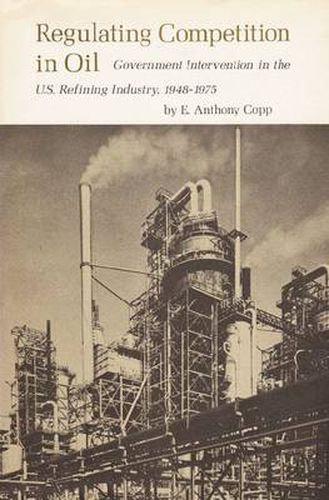Readings Newsletter
Become a Readings Member to make your shopping experience even easier.
Sign in or sign up for free!
You’re not far away from qualifying for FREE standard shipping within Australia
You’ve qualified for FREE standard shipping within Australia
The cart is loading…






This title is printed to order. This book may have been self-published. If so, we cannot guarantee the quality of the content. In the main most books will have gone through the editing process however some may not. We therefore suggest that you be aware of this before ordering this book. If in doubt check either the author or publisher’s details as we are unable to accept any returns unless they are faulty. Please contact us if you have any questions.
The full cost of the failing energy policies of the United States can be measured by out vulnerability to the dictates of foreign oil-producing countries. U.S. government policy has traditionally been aligned in support of independent oil refiners against the dominance of refining by the major oil companies, with the intent of ensuring competition. At the same time, petroleum policies of the last quarter-century have been justified on grounds of the need for national energy security. Those combined national security and antimonopoly policies have resulted in unacceptably high costs and have only undermined the government’s attempts to achieve any kind of long-term energy goals. Beginning with a thorough economic history and analysis of the refining industry’s growth and structure, E. Anthony Copp shows how government import and domestic pricing policy has tended to subsidize the less economic sizes of independent refiners while reinforcing the market power of major refiners, thus failing to provide adequate additions to domestic petroleum proved reserves or to encourage more efficiency in refining capacity. The weakness of natural gas policies (which government has consistently failed to coordinate with national petroleum policy) and state prorationing and other policies since 1948 has also contributed to the current energy crisis.
A major theme of this book is that with energy resource allocation now heavily weighted by government planning, the independents may not gain at the expense of the major oil companies, but more likely both groups will yield actual or potential market power to governments, both foreign and domestic. How well government and industry learn to alter this pattern will have great bearing on the success of this nation in filling its energy needs and in preventing or allaying a more severe energy crisis in the 1980’s.
Examining recent and current administration efforts at regulation, and the impact of OPEC’s rise to world economic power on those policy efforts, the author presents ideas that should be considered in the development of a new national energy policy.
$9.00 standard shipping within Australia
FREE standard shipping within Australia for orders over $100.00
Express & International shipping calculated at checkout
This title is printed to order. This book may have been self-published. If so, we cannot guarantee the quality of the content. In the main most books will have gone through the editing process however some may not. We therefore suggest that you be aware of this before ordering this book. If in doubt check either the author or publisher’s details as we are unable to accept any returns unless they are faulty. Please contact us if you have any questions.
The full cost of the failing energy policies of the United States can be measured by out vulnerability to the dictates of foreign oil-producing countries. U.S. government policy has traditionally been aligned in support of independent oil refiners against the dominance of refining by the major oil companies, with the intent of ensuring competition. At the same time, petroleum policies of the last quarter-century have been justified on grounds of the need for national energy security. Those combined national security and antimonopoly policies have resulted in unacceptably high costs and have only undermined the government’s attempts to achieve any kind of long-term energy goals. Beginning with a thorough economic history and analysis of the refining industry’s growth and structure, E. Anthony Copp shows how government import and domestic pricing policy has tended to subsidize the less economic sizes of independent refiners while reinforcing the market power of major refiners, thus failing to provide adequate additions to domestic petroleum proved reserves or to encourage more efficiency in refining capacity. The weakness of natural gas policies (which government has consistently failed to coordinate with national petroleum policy) and state prorationing and other policies since 1948 has also contributed to the current energy crisis.
A major theme of this book is that with energy resource allocation now heavily weighted by government planning, the independents may not gain at the expense of the major oil companies, but more likely both groups will yield actual or potential market power to governments, both foreign and domestic. How well government and industry learn to alter this pattern will have great bearing on the success of this nation in filling its energy needs and in preventing or allaying a more severe energy crisis in the 1980’s.
Examining recent and current administration efforts at regulation, and the impact of OPEC’s rise to world economic power on those policy efforts, the author presents ideas that should be considered in the development of a new national energy policy.